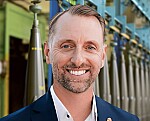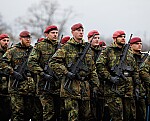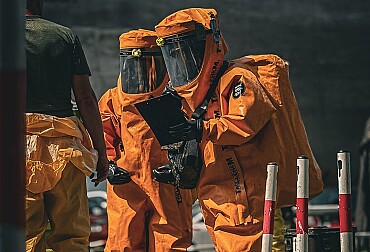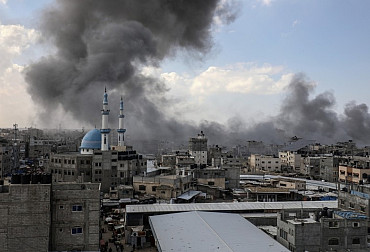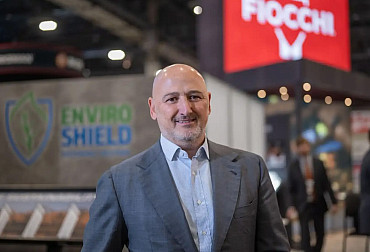General Breedlove: We Must Solve the ‘Putin Problem’
Former Supreme Allied Commander Europe, retired General Philip Mark Breedlove, visited Prague in September 2025 to attend the EURAC international security conference. One of the most prominent American strategists of recent decades, who headed the SHAPE alliance headquarters from 2013 to 2016, gave a speech focused on strengthening transatlantic ties and the West's response to growing pressure from Russia and other authoritarian regimes. His participation lent the Prague meeting extraordinary prestige and served as a reminder of the crucial role that military experience and political foresight play in the current debate on the future of European security.
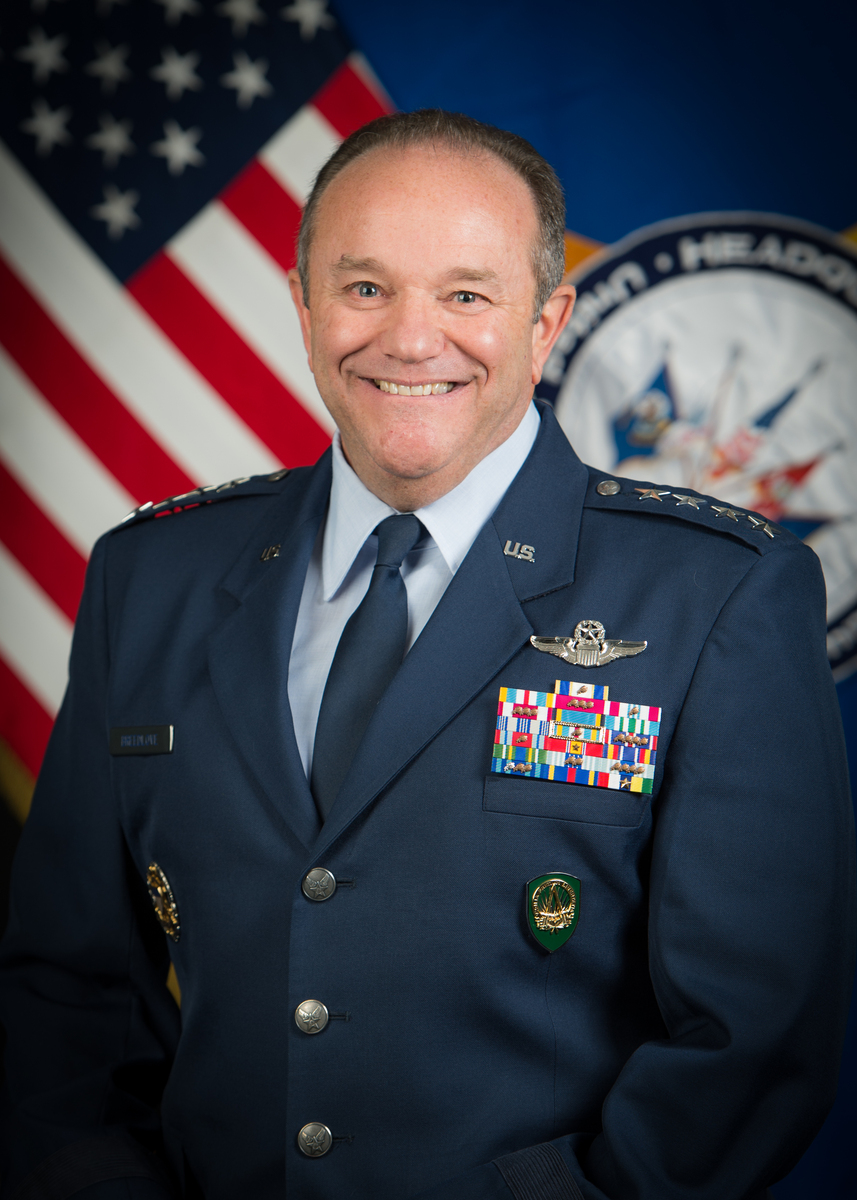
In his speech, General Breedlove emphasised the critical importance of strengthening the interoperability capabilities of air forces within NATO. In today's reality, characterised by revisionist regimes, he believes that readiness and rapid response capabilities are key to deterring potential threats. The General's experience from his command at SHAPE offered European military leaders a valuable practical and conceptual basis for the further development of Alliance air force capabilities. During his speech, Breedlove also referred to recent strategic analyses: ‘You can see what is happening in the big cities of Ukraine. The same thing could happen in some of Europe's big cities,’ said the general, pointing out the vulnerability of European airspace to Russian attacks. Breedlove recommended that the commanders and representatives of the armed forces present continue joint planning, investment in integrated air and missile defence (IAMD), and improved surveillance and reconnaissance capabilities, and suggested supporting multinational projects such as ELSA, which are seeking systems with a range exceeding 2,000 km.
Retired four-star general Philip Mark Breedlove subsequently gave DEFENSE MAGAZINE an exclusive interview, which you can read below.
General, how do you think Europe's security architecture has changed since you were in office until today?
I think the good news prevails in this regard. Ukraine was the target of two attacks by Vladimir Putin in early 2014. Since then, NATO has been on the path to greater readiness and greater responsiveness. Initially, this process was slow but positive. Today, it is gaining momentum. We are better prepared than before, we have greater capabilities than before. And we all understand that we are facing an enemy. When I started out in this field, we did not call Russia that. But Russia has proven that it is an enemy, and NATO is now united around the need to confront this threat.
Let's take a look at Africa. At the time when you commanded the US Air Force in Africa, the continent was facing the threat of terrorist groups. How do you perceive the security situation in Africa today? And what should NATO and the United States focus on?
Although NATO is a regional alliance, its interests are global in scope. North Africa, the Mediterranean and the Suez Canal are key to trade and the functioning of member states. That is why I believe that NATO must pay close attention to developments in the security situation, particularly in North Africa.
If you were the head of NATO today, what steps would you recommend in response to Russia's aggression against Ukraine?
One of our main tasks remains unity. Putin is trying to divide the alliance, win individual countries over to his side and weaken their cooperation. That is why it is absolutely essential for us to maintain unity. The second priority is preparedness. We must ask ourselves how prepared we are to fight if necessary today – and at the same time invest in long-term preparedness. But preparedness is not just about buying new tanks, aircraft or ships. It is primarily about people, their training and ammunition. And we must not forget that.
It's a long-term process...
Yes, long-term preparedness is always a matter of time. But even immediate preparedness—that which is needed "today"—cannot be built overnight. It requires training and systematic investment in people and resources.
How do you assess the military, economic, and political support provided to Ukraine by NATO and its member states to date?
I will start by criticizing the United States and then NATO—neither side is doing enough for Ukraine. This war has been going on for 11 years. Ukraine is the target of a world power and bears the brunt of the fight for Europe. If Putin did not have his hands full with Ukraine, he would focus on other parts of Europe. That is why I am convinced that both the United States and European countries must do much more.
What do you think will be the biggest challenges for NATO in the next ten years?
We must resolve the "Putin problem." He himself openly says that he is bothered by the presence of European forces in Ukraine and that he has imperial ambitions in Europe. We must counter his efforts. The second major challenge is our ability to defend ourselves in the so-called gray zone, i.e., in the area of hybrid attacks. We are strong in the area of strategic nuclear deterrence, but less so in the tactical sphere. We have deterrence within the alliance in terms of conventional forces, but practically none outside it. And in the hybrid sphere, we have none at all—and that is the worst-case scenario.
How do you assess the position of the Czech Republic's armed forces within NATO?
The Czech Republic deserves praise. It invests in itself, in its long-term preparedness, and acquires modern equipment. All indicators are very positive. Of course, it has had to come a long way, just like other former Soviet states that were deliberately kept backward. But today, it is clear that this country is doing many things right.
How has your view of Russia changed since you were on active duty? And how should the alliance respond to its current strategies and tactics?
My opinion of Russia has not changed since 1983. That was when I first came to Europe as an F-16 pilot with NATO, and even then I knew that Russia was the enemy. After the fall of the Iron Curtain, the world spent two decades trying to make Russia a partner. I was not fooled. It was already clear in 2008 that Russia had no interest in becoming part of the West. And since then, it has assembled its army several times, crossed internationally recognized borders, and attacked its neighbors. Mr. Putin will never be a partner in peace.
In addition to Russia, we now also have to contend with China's growing influence. How should the alliance balance its resources between Europe and the Indo-Pacific region?
Our main priority is to deal with the threat from Russia in Europe. But NATO has long been interested in developments in the Pacific. For example, at the beginning of my tenure as Supreme Allied Commander Europe, I approved the participation of seven European countries in the large RimPac exercise in the Pacific. Europe has interests in this region because free trade and the free flow of goods are vital to it. It is therefore not surprising that we continue to take an interest in the situation in the Pacific.
How do you view efforts to strengthen European defense autonomy, for example through EU defense initiatives? Is this more of a benefit or a risk of weakening NATO?
I am often asked this question, and many people expect me to be against strengthening the EU. But I see it exactly the opposite way. Most EU countries are also members of NATO, so any strengthening of their defense also strengthens the alliance. It is not a question of competition, but of complementarity. I like to give two examples: the operation in Bosnia and Herzegovina, where the EU is leading the mission but it is commanded by a NATO representative because the EU does not have its own command and intelligence capabilities. Or the fight against pirates off the Horn of Africa – when only NATO was operating there, the pirates simply waited for us to leave. However, the joint NATO-EU operation combined NATO's military strength and capabilities with the EU's civilian instruments, such as links to the police and the courts. The result was clear – piracy declined significantly. That is why we should not seek competition, but ways to cooperate.
Which moments during your command in Europe do you consider to have been crucial for the current form of NATO?
Russia's invasion of Ukraine in 2014 fundamentally changed NATO.
What would you recommend to young officers and commanders in NATO who are facing new security challenges today?
It's difficult advice because it starts with American failure. In the past, we weren't "joint"—that is, connected between the individual branches. And when we attempted a hostage rescue operation in Iran, it ended in disaster because the Army, Navy, Air Force, and Marine Corps didn't function as a single team. It was only legislation that forced us to join forces. Today, we are so interconnected that we can no longer imagine the opposite. During my career, I have worked with the Army, Navy, and Air Force, commanding joint operations. So my first piece of advice is: learn to fight together. Today, there is talk of so-called multi-domain operations, i.e., conducting combat across domains. But that is basically "joint" warfare on steroids. To master the latter, you must be good at the former. And in countries where the integration of individual branches is not yet a matter of course, I recommend to young officers: learn to fight side by side with your colleagues from other branches of the military. It will make you better soldiers for life.



